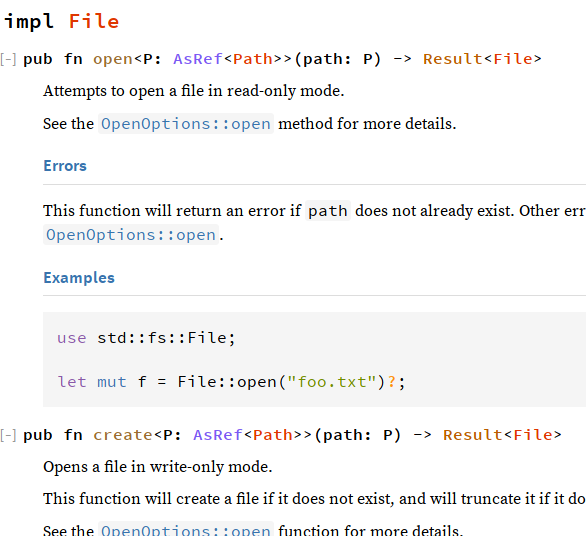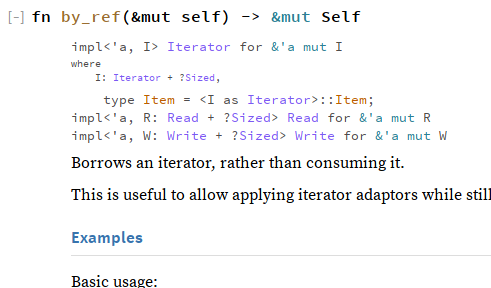show macro backtrace with -Z flag
Fixes#39413 by adding a facility to restore the "old school" macro expansion backtraces (previously removed in 61865384b8).
The restored functionality is accessed through the flag `-Z external-macro-backtrace`. Errors showing the truncated backtraces will suggest this flag.
### Example
Code: <details>
`a/src/lib.rs`
```rust
#[macro_export]
macro_rules! a {
() => { a!(@) };
(@) => { a!(@@) };
(@@) => {
syntax error;
}
}
```
`b/src/main.rs`
```rust
#[macro_use] extern crate a;
macro_rules! b {
() => { b!(@) };
(@) => { b!(@@) };
(@@) => {
syntax error;
}
}
fn main() {
a!();
b!();
}
```
</details>
<br/><br/>
Running without env var (note: first error is from remote macro, second from local macro):
<details>
```
$ cargo +custom run
Compiling b v0.1.0
error: expected one of `!`, `.`, `::`, `;`, `?`, `{`, `}`, or an operator, found `error`
--> src/main.rs:12:5
|
12 | a!();
| ^^^^^
| |
| expected one of 8 possible tokens here
| unexpected token
|
= note: this error originates in a macro outside of the current crate (run with RUST_MACRO_BACKTRACE=1 for more info)
error: expected one of `!`, `.`, `::`, `;`, `?`, `{`, `}`, or an operator, found `error`
--> src/main.rs:7:16
|
7 | syntax error;
| -^^^^^ unexpected token
| |
| expected one of 8 possible tokens here
...
13 | b!();
| ----- in this macro invocation
error: aborting due to 2 previous errors
error: Could not compile `b`.
To learn more, run the command again with --verbose.
```
</details>
The output is the same as today, except for an addition to the note which aids discoverability of the new environment variable.
<br/><br/>
Running _with_ env var:
<details>
```
$ RUST_MACRO_BACKTRACE=1 cargo +custom run
Compiling b v0.1.0
error: expected one of `!`, `.`, `::`, `;`, `?`, `{`, `}`, or an operator, found `error`
--> <a macros>:1:72
|
1 | ( ) => { a ! ( @ ) } ; ( @ ) => { a ! ( @ @ ) } ; ( @ @ ) => { syntax error ;
| -^^^^^ unexpected token
| |
| expected one of 8 possible tokens here
src/main.rs:12:5: 12:10 note: in this expansion of a! (defined in <a macros>)
<a macros>:1:11: 1:20 note: in this expansion of a! (defined in <a macros>)
<a macros>:1:36: 1:47 note: in this expansion of a! (defined in <a macros>)
error: expected one of `!`, `.`, `::`, `;`, `?`, `{`, `}`, or an operator, found `error`
--> src/main.rs:7:16
|
7 | syntax error;
| -^^^^^ unexpected token
| |
| expected one of 8 possible tokens here
src/main.rs:12:5: 12:10 note: in this expansion of a! (defined in <a macros>)
<a macros>:1:11: 1:20 note: in this expansion of a! (defined in <a macros>)
<a macros>:1:36: 1:47 note: in this expansion of a! (defined in <a macros>)
error: expected one of `!`, `.`, `::`, `;`, `?`, `{`, `}`, or an operator, found `error`
--> src/main.rs:7:16
|
7 | syntax error;
| -^^^^^ unexpected token
| |
| expected one of 8 possible tokens here
src/main.rs:13:5: 13:10 note: in this expansion of b! (defined in src/main.rs)
src/main.rs:4:13: 4:18 note: in this expansion of b! (defined in src/main.rs)
src/main.rs:5:14: 5:20 note: in this expansion of b! (defined in src/main.rs)
error: aborting due to 2 previous errors
error: Could not compile `b`.
To learn more, run the command again with --verbose.
```
</details>
The output is hard to read, but better than nothing (and it's exactly what we used to have before the infamous `fix_multispans_in_std_macros`).
<br/><br/>
Wishlist:
- Save the actual source of macros in crate metadata, not just AST, so the output can be improved
- Hopefully this would allow line numbers in the trace as well
- Show the actual macro invocations in the traces
r? @nrc
show in docs whether the return type of a function impls Iterator/Read/Write
Closes#25928
This PR makes it so that when rustdoc documents a function, it checks the return type to see whether it implements a handful of specific traits. If so, it will print the impl and any associated types. Rather than doing this via a whitelist within rustdoc, i chose to do this by a new `#[doc]` attribute parameter, so things like `Future` could tap into this if desired.
### Known shortcomings
~~The printing of impls currently uses the `where` class over the whole thing to shrink the font size relative to the function definition itself. Naturally, when the impl has a where clause of its own, it gets shrunken even further:~~ (This is no longer a problem because the design changed and rendered this concern moot.)
The lookup currently just looks at the top-level type, not looking inside things like Result or Option, which renders the spotlights on Read/Write a little less useful:
<details><summary>`File::{open, create}` don't have spotlight info (pic of old design)</summary>

</details>
All three of the initially spotlighted traits are generically implemented on `&mut` references. Rustdoc currently treats a `&mut T` reference-to-a-generic as an impl on the reference primitive itself. `&mut Self` counts as a generic in the eyes of rustdoc. All this combines to create this lovely scene on `Iterator::by_ref`:
<details><summary>`Iterator::by_ref` spotlights Iterator, Read, and Write (pic of old design)</summary>

</details>
[rustllvm] Use report_fatal_error over llvm_unreachable
This makes it more robust when assertions are disabled, crashing instead of causing UB.
Also introduces a tidy check to enforce this rule, which in turn necessitated making tidy run on `src/rustllvm`.
Fixes#44020
Fix typo in MIR "cannot move out of borrowed content"
I believe this all we need to change (#46018). Anyway, do let me know if there is anything else that needs to changed as well!
add doc for doing `Read` from `&str`
This information can be found on [stackoverflow](https://stackoverflow.com/questions/32674905/pass-string-to-function-taking-read-trait) but I think it would be beneficial if it was documented in the `Read` trait itself.
I had an *extremely* hard time finding this information, and "mocking" a reader with a string is an EXTREMELY common thing (I believe).
impl From for Mutex and RwLock
I felt that these implementations were missing, because doing `x.into()` works for other smart containers (such as `RefCell`), and in general I would say that the conversion makes sense.
This makes it more robust when assertions are disabled,
crashing instead of causing UB.
Also introduces a tidy check to enforce this rule,
which in turn necessitated making tidy run on src/rustllvm.
Fixes#44020
The GNU C library (glibc) is documented to always allocate with an alignment
of at least 8 or 16 bytes, on 32-bit or 64-bit platforms:
https://www.gnu.org/software/libc/manual/html_node/Aligned-Memory-Blocks.html
This matches our use of `MIN_ALIGN` before this commit.
However, even when libc is glibc, the program might be linked
with another allocator that redefines the `malloc` symbol and friends.
(The `alloc_jemalloc` crate does, in some cases.)
So `alloc_system` doesn’t know which allocator it calls,
and needs to be conservative in assumptions it makes.
The C standard says:
https://port70.net/%7Ensz/c/c11/n1570.html#7.22.3
> The pointer returned if the allocation succeeds is suitably aligned
> so that it may be assigned to a pointer to any type of object
> with a fundamental alignment requirement
https://port70.net/~nsz/c/c11/n1570.html#6.2.8p2
> A fundamental alignment is represented by an alignment less than
> or equal to the greatest alignment supported by the implementation
> in all contexts, which is equal to `_Alignof (max_align_t)`.
`_Alignof (max_align_t)` depends on the ABI and doesn’t seem to have
a clear definition, but it seems to match our `MIN_ALIGN` in practice.
However, the size of objects is rounded up to the next multiple
of their alignment (since that size is also the stride used in arrays).
Conversely, the alignment of a non-zero-size object is at most its size.
So for example it seems ot be legal for `malloc(8)` to return a pointer
that’s only 8-bytes-aligned, even if `_Alignof (max_align_t)` is 16.
Fix broken CSS for book redirect pages
rust.css has to be next to the font files so we shouldn't copy it for
only the book redirect pages, instead just use the version that is
already there.
This also removes the duplicate code creating version_info.html.
Fixes: #45974
* The overflow-checking shift items need to take a full 128-bit type, since they need to be able to detect idiocy like `1i128 << (1u128 << 127)`
* The unchecked ones just take u32, like the `*_sh?` methods in core
* Because shift-by-anything is allowed, cast into a new local for every shift
std: Add a new wasm32-unknown-unknown target
This commit adds a new target to the compiler: wasm32-unknown-unknown. This target is a reimagining of what it looks like to generate WebAssembly code from Rust. Instead of using Emscripten which can bring with it a weighty runtime this instead is a target which uses only the LLVM backend for WebAssembly and a "custom linker" for now which will hopefully one day be direct calls to lld.
Notable features of this target include:
* There is zero runtime footprint. The target assumes nothing exists other than the wasm32 instruction set.
* There is zero toolchain footprint beyond adding the target. No custom linker is needed, rustc contains everything.
* Very small wasm modules can be generated directly from Rust code using this target.
* Most of the standard library is stubbed out to return an error, but anything related to allocation works (aka `HashMap`, `Vec`, etc).
* Naturally, any `#[no_std]` crate should be 100% compatible with this new target.
This target is currently somewhat janky due to how linking works. The "linking" is currently unconditional whole program LTO (aka LLVM is being used as a linker). Naturally that means compiling programs is pretty slow! Eventually though this target should have a linker.
This target is also intended to be quite experimental. I'm hoping that this can act as a catalyst for further experimentation in Rust with WebAssembly. Breaking changes are very likely to land to this target, so it's not recommended to rely on it in any critical capacity yet. We'll let you know when it's "production ready".
### Building yourself
First you'll need to configure the build of LLVM and enable this target
```
$ ./configure --target=wasm32-unknown-unknown --set llvm.experimental-targets=WebAssembly
```
Next you'll want to remove any previously compiled LLVM as it needs to be rebuilt with WebAssembly support. You can do that with:
```
$ rm -rf build
```
And then you're good to go! A `./x.py build` should give you a rustc with the appropriate libstd target.
### Test support
Currently testing-wise this target is looking pretty good but isn't complete. I've got almost the entire `run-pass` test suite working with this target (lots of tests ignored, but many passing as well). The `core` test suite is [still getting LLVM bugs fixed](https://reviews.llvm.org/D39866) to get that working and will take some time. Relatively simple programs all seem to work though!
In general I've only tested this with a local fork that makes use of LLVM 5 rather than our current LLVM 4 on master. The LLVM 4 WebAssembly backend AFAIK isn't broken per se but is likely missing bug fixes available on LLVM 5. I'm hoping though that we can decouple the LLVM 5 upgrade and adding this wasm target!
### But the modules generated are huge!
It's worth nothing that you may not immediately see the "smallest possible wasm module" for the input you feed to rustc. For various reasons it's very difficult to get rid of the final "bloat" in vanilla rustc (again, a real linker should fix all this). For now what you'll have to do is:
cargo install --git https://github.com/alexcrichton/wasm-gc
wasm-gc foo.wasm bar.wasm
And then `bar.wasm` should be the smallest we can get it!
---
In any case for now I'd love feedback on this, particularly on the various integration points if you've got better ideas of how to approach them!
Add RefCell<T>::replace_with
I also moved the `Panic` sections to before examples in the other two functions also under this feature gate, and changed the variable names in `replace` to be more readable.
r? @rust-libs